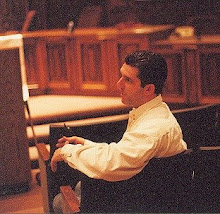A Lesson in Private Property Rights
Look, it's not that they don't mean well. The courts really are trying. But the fact is that most judges do not understand how private property rights protect consumers. They consistently err on the side of "access for consumers" to data or markets, instead of protecting the incentives for providers to create that data or market in the first place.
To what do I refer? Glad you asked. Recently, the National Association of Realtors settled an antitrust suit with the Justice Department, agreeing to allow the government to strip its property rights in the name of "protecting the consumer". Seems that the multiple listing services the Realtors maintain were, in some markets, restricting access by unaffiliated Realtors to MLS data. The access is now to be granted to anyone, decision effective end of the summer.
Who created the data? The Realtors did. Who has the right to sell the data to whomever he pleases? No one, apparently. Is this going to result in lower commissions for Realtors? Possibly. Is this going to result in lower fees paid by buyers and sellers? Not likely.
Why? Here's the lesson: markets and repositories of data and other goods and services are created by Party A for one reason - to make a profit. The more that profit is protected, the more reason a party has to believe that his rights to the good or service will be protected by law, the more likely he is to create value by providing additional goods and services, and the more likely others are to start competitive enterprises to get some of the pie for themselves. If, however, there is no expectation that profit can be maintained or maximized, because by government whim property rights can be voided or involuntarily transferred, then creation will lessen and eventually disappear.
An example: you decide to open a lemonade stand. You buy the lemons, squeeze them, sugar the juice, get cups and ice and a cash box, and a small stand. You set up shop, and business is brisk. There are, however, customers that cannot come to your stand because they live too far away. You look at the profit in selling to them and decide that it doesn't make sense to service those people, because the transportation costs are too high. Along comes the government and says, no, not only do you have to service these people, you have to service them at the same price you charge everyone else. This will, the government says, lower the cost of the service for these people. Otherwise it isn't fair.
What do you do? Well, there are three options. One, you can continue to charge the same price and just lose money (in which case you are a hobbyist or a philanthropist, but not a businessman) or two, you can go out of business, or three, you can raise your prices for everyone, so that you can make the profit you were making before. Since option one is only available to a small number of people, the vast majority of us will choose options 2 or 3, which raises the cost of the lemonade for everyone (in the case of option 2, it raises it to infinity, since the lemonade isn't available at all at any price), exactly the opposite of what the government intended.
Government, and especially the court system, seems to view property rights as outmoded, as being unworthy of protection (except, of course, for movies and music), and even as restrictions on trade and competition. In effect, with most antitrust suits, the government is telling us that if it weren't for these pesky property rights, our costs would be lower and competition would flourish. In actuality, the reverse is true. As the kite falls when the "restricting" string is cut, so competition and choice disappear when the government fails to protect the rights of producers to the thing they produce. The string actually supports the kite, giving it resistance against which to rise with the wind. Property rights allow producers to have confidence that their work will be valuable. It is property rights that create competition, and the stronger those rights are, the better and more robust the competition will be, and the better the choice and the cost for the consumer.
This ruling, like so many, many others, ignores basic economics and property rights. It's bad for practically everyone.
Shocker.
P.S. For a brilliant exposition of this, see anything written by Hernando DeSoto, or try this book.


<< Home